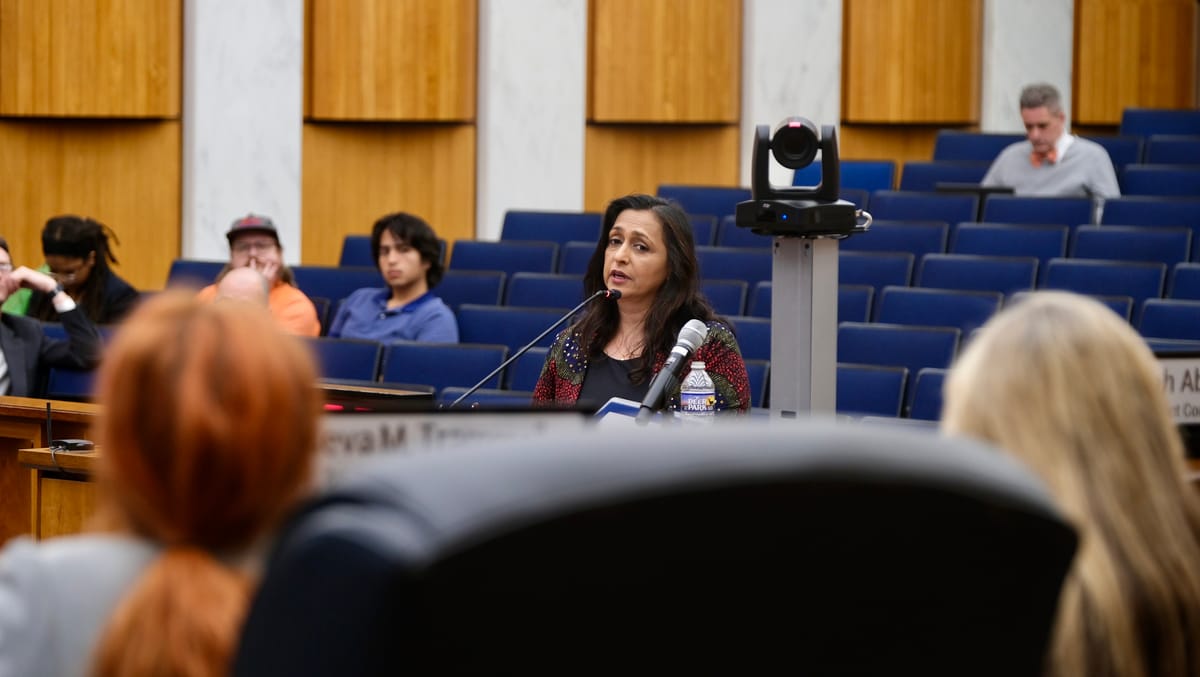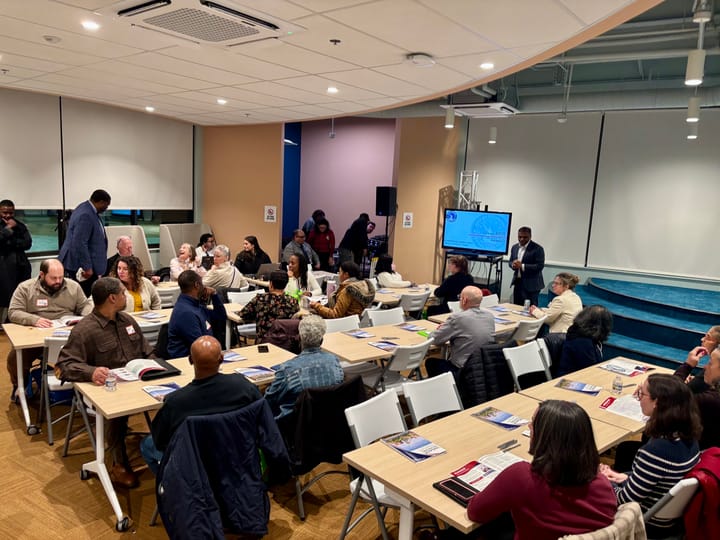City Council backs raises for all city employees, makes minimal budget changes

The Richmond City Council decided Monday to support Mayor Danny Avula’s proposal for across-the-board pay raises for city employees, while failing to find extra money to boost funding for Richmond Public Schools or to grant a $20 minimum wage to contracted janitors and security guards who work at City Hall.
With most major spending boosts and reductions left on the cutting room floor, the council appears set to make only a few million dollars in adjustments to an operating budget that exceeds $1 billion. The body has not yet formally approved its budget amendments, but the purpose of Monday’s meeting was to decide — without any recorded votes — which amendments the council could back.
The legislative body mostly left the mayor’s budget intact, only tinkering with a few line items without making sweeping changes.
Some policy changes wrapped into the budget were removed at the council’s request for consideration as standalone items. The proposals stripped from the budget would have weakened city residency rules for top City Hall officials, repealed a rule requiring the city attorney to issue legal opinions in writing and lifted a rule requiring some city job postings to be advertised in the newspaper.
In the capital budget used to fund infrastructure projects, the council is set to eliminate a few million dollars allocated for new city vehicles and a project to widen Laburnum Avenue on the city’s North Side. That allowed the council to add back in $1.7 million to fund projects that emerge from the People’s Budget, a participatory budgeting initiative in which regular Richmonders vote on what they want the city to fund.
The council rejected a proposal to limit or shrink raises for the highest earners in city government, bringing an end to a contentious debate that’s unfolded for the last few weeks as city policymakers craft a budget for the fiscal year that starts July 1.
The council seemed to agree to study city salary trends in depth later this year. Council President Cynthia Newbille said the conversation about salaries opened the door to a more “intentional look” at the issue outside the pressures of budget season.
“We do not have a consensus to proceed on this item,” Newbille said.
Though there was no formal vote on the raise issue, all three first-term City Council members elected last fall said they would have voted for a compromise proposal introduced Monday by Councilor Sarah Abubaker (4th District).
After Avula proposed 3.25% raises for all city employees, Abubaker and Councilor Kenya Gibson countered with a plan to not grant raises to non-union city employees receiving salaries of over $150,000. On Monday, Abubaker introduced a revised proposal that would still grant raises to all employees, but shrink raises for employees making more than $175,000 by giving them a raise based on the average salary of lower-paid employees.
Under Abubaker’s proposal, a high-ranking city official making $200,000 would have gotten a $2,356 raise. Under Avula’s plan, that same official would get a $6,500 raise.
On Monday, Abubaker said she was trying to be a good steward of taxpayer dollars and avoid widening the gap between the city’s highest-paid and lowest-paid employees. But she said she recognized there wasn’t enough support for her idea to pass.
“I know I’ve pissed off a lot of people in the administration about this,” she said, adding that she felt the administration’s backlash to her proposal shows how “broken” the city’s budget process is and “how resistant we are to basic questions of fiscal discipline.”
Gibson said she was “shocked” there wasn’t enough support on council to pass the compromise that would still give all employees a raise.
“We didn’t go for a week without water because the DPU director wasn’t making enough money,” Gibson said, referring to the January water crisis. “The city needs to work better.”
Councilor Andrew Breton (1st District) called the revised proposal “quite reasonable.”
“I do think it’s a good compromise,” he said.
Several other council members thanked Abubaker for championing the issue and starting the conversation, while stopping short of saying they were for or against the proposal.
“I think if we’re going to do anything, it needs to be pretty measured and thoughtful and considerate,” said Councilor Stephanie Lynch (5th District).
Altogether, the council approved almost $5 million in alterations to the city’s proposed operating budget. However, almost $3 million of that amount is essentially being absorbed into the budget Avula proposed without requiring spending cuts elsewhere.
For example, the city is carrying over $800,000 allocated to help low-income residents repair dilapidated mobile homes from the previous budget year to the next budget year. Similarly, the city’s Department of Planning and Development Review said it could accommodate the council’s $250,000 request for two rental inspector positions within the department budget the mayor proposed. And to fund a positive youth development program at Martin Luther King Jr. Middle School run by the nonprofit UBU 100, the council agreed to earmark $250,000 for the group from the Neighborhood and Community Services budget, even though the group didn’t go through the city’s regular process to apply for nonprofit funding.
The council’s $1.94 million in budget additions also include several other restorations of money for nonprofit groups that saw their city funding reduced in the mayor’s introduced budget. The council added another $400,000 for positive youth development group NextUp RVA and restored $100,000 for the Black History Museum and Cultural Center of Virginia.
The council added $880,000 to a variety of initiatives meant to help Richmonders facing eviction or other financial crises, and provided $164,000 to support salary increases for deputy court clerks at the local courthouse. Richmond Circuit Court Clerk Ed Jewett told the council he has been losing staff to surrounding counties due to his inability to provide competitive pay.
To balance out the $1.94 million in additional spending, the council and administration agreed to cut 10 vacant positions across several departments. Four positions were cut in the anti-poverty Office of Community Wealth Building, three were cut from the Department of Public Works, two were cut from the city election office and one was removed from the Department of Parks and Recreation.
The body also cut a small amount of operating expenses, most significantly reducing funding to the anti-poverty Richmond Resilience Initiative by $500,000. That’s the city’s guaranteed income pilot program, which involves monthly payments to help establish stability for people trying to overcome poverty. Officials indicated there’s still enough money allocated to the program to continue it in the next budget year.
The council ended up having $50,000 left that hadn’t been budgeted, but agreed to find a use for the leftovers later.
Monday’s meeting ended with nearly $16 million in additional amendments, including millions more proposed for public schools, essentially cast aside.
The plan to extend the city’s $20 minimum wage to contract employees who work as janitors and security guards was among the amendments left out. But council members said they would continue exploring the city’s options, including the possibility of making those workers government employees.
“That’s a commitment I think everybody has made here,” Newbille said.
Abubaker asked if there was a timeline for the plan to study the issue later.
Newbille and interim Chief Administrative Officer Sabrina Joy-Hogg both said they weren’t sure how long it would take.
“‘I can’t give you a timeline right now,” Joy-Hogg said. “But the mayor’s transmittal letter said we would look at some of these items.”
The amendments the council approved will now go to the city attorney’s office to be turned into formal legislation. The budget will be formally approved next month.
Contact Reporter Graham Moomaw at gmoomaw@richmonder.org






